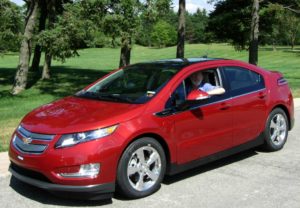 Consumer ratings for electric cars are at their very early stages since they have really not been on the market that long and consumers have a skewed view of electric cars in general for two reasons. First the pure electric cars take a long time to charge and they do not go that far on a full battery charge to begin with. Secondly they are still very expensive compared to their counterparts in the gasoline side and the price of these cars eat up any money you might save on the consumption side.
Consumer ratings for electric cars are at their very early stages since they have really not been on the market that long and consumers have a skewed view of electric cars in general for two reasons. First the pure electric cars take a long time to charge and they do not go that far on a full battery charge to begin with. Secondly they are still very expensive compared to their counterparts in the gasoline side and the price of these cars eat up any money you might save on the consumption side.
However we expect that hybrid and all electric cars are here to stay and it is just a matter of time until the manufacturers figure out some of the kinks in these cars charging and longevity issues. Once they become mass produced, the price of electric cars will also come down a great deal as well. The range problem is a bit more difficult. If you place a larger battery in the car, the price goes up, but it also still takes a relatively long time to recharge the car’s battery.
Most Families Have Two Cars
A case can be made for a family with two cars to have one all electric car and the other a hybrid or a regular gasoline car. The gasoline car would be used for long trips, while the all electric car would be used for all of the short city trips which they are more than adequate for in terms of distance that can be supported by the batteries. Short trips around the city are notoriously bad for gas mileage with all of the stops and starts. A gasoline car that gets 30 miles to the gallon on the highway would be lucky to get 20 miles to the gallon in the city. This is a perfect situation for the all electric car and provides a maximum savings opportunity.
What are the Factors to Consider re Electric Cars
When it comes to rating cars, the consumer will consider the following items as part of their comparison of any car really. These factors are centered around practical issues which are important to their lifestyle and their personal economics.
- Driving range on a charge,
- Passenger carrying capacity,
- Price, and
- Availability
More Details
Driving range on a charge – this has to be one of the most important factors. Will it take you where you want to go on a daily basis without needing a recharge. It must last until the end of the day when you make it home. If it will not, what is the backup plan. Hybrids have gasoline engines to take over when the batteries run low. However all electrics must be recharged before they go further when the battery runs down.
Passenger carrying capacity – how many people will it carry and will you be able to handle the groceries, the kids and all of the sports equipment that many families have to deal with. This is a very personal life style item and one to be considered carefully.
Price – right now most hybrids and electric vehicles are carrying a hefty price tag. This is partly due to development cost recovery and partly due to the cost of the battery. These prices are sometimes subsidized by local governments in an effort to help this fledgling industry move along. However in most cases you are still going to pay a premiums for these cars. Will you save enough to provide you with a short of enough payback to cover the extra cost?
Availability – finally availability is improving. However they are not available in all markets. That means that mechanics etc are also not trained and available to support these cars. Check this issue out carefully before you make a purchase. You may even want to inquire how many mechanics they have trained. “How long they have been working on these types of cars before you make your purchase.